Let's Talk About Bipolar Disorder
Help raise awareness about bipolar disorder by sharing informational materials based on the latest research. Share science. Share hope. https://go.nih.gov/nxSAY5e #shareNIMH

An official website of the United States government
Here’s how you know
Official websites use .gov
A .gov website belongs to an official government organization in the United States.
Secure .gov websites use HTTPS
A lock ( ) or https:// means you’ve safely connected to the .gov website. Share sensitive information only on official, secure websites.
Due to current HHS and NIH restructuring, some content on nimh.nih.gov is not being updated regularly. Please refer to clinicaltrials.gov and nih.gov for up-to-date information on NIH research.
Transforming the understanding
and treatment of mental illnesses.
Use these resources to raise awareness about bipolar disorder.

Bipolar disorder is a mental illness that causes unusual shifts in a person’s mood, energy, activity levels, and concentration. Bipolar disorder is typically diagnosed during late adolescence (teen years) or early adulthood. Although the symptoms may vary over time, bipolar disorder usually requires lifelong treatment. For more information on bipolar disorder, visit the health topic page or view the available brochures.
Help raise awareness about bipolar disorder by sharing information and materials based on the latest research.
Download and share these messages to help spread the word about bipolar disorder. You can copy and paste the text and graphic into a tweet, email, or post. We encourage you to use the hashtag #shareNIMH in your social media posts to connect with people and organizations with similar goals. For more ideas on how to use these resources, visit our help page.
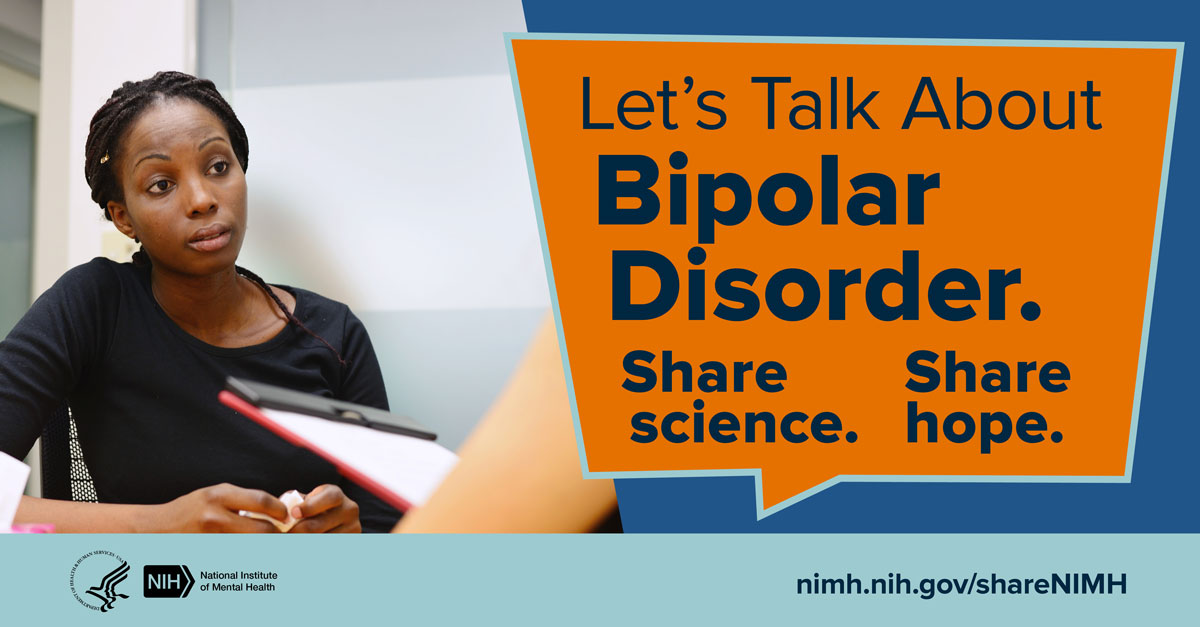
Help raise awareness about bipolar disorder by sharing informational materials based on the latest research. Share science. Share hope. https://go.nih.gov/nxSAY5e #shareNIMH
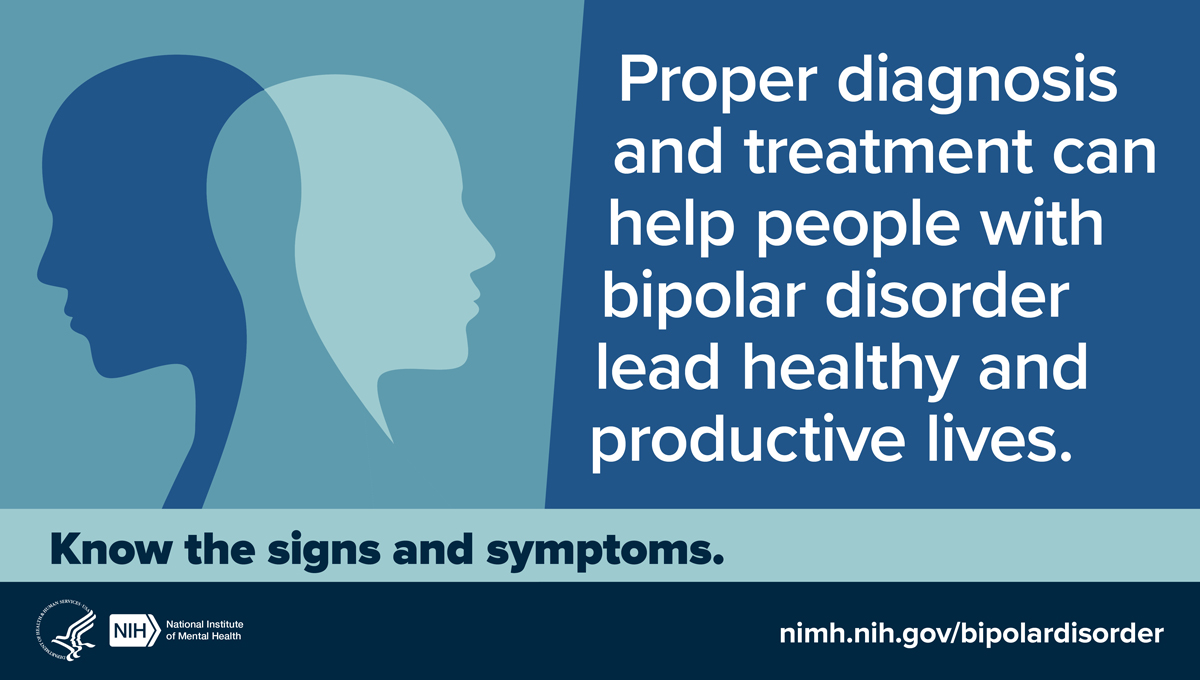
People with bipolar disorder experience periods of unusually intense emotion, changes in sleep patterns and activity levels, and unusual behaviors. Learn about the basic types of bipolar disorder: https://go.nih.gov/LQmysBq #shareNIMH
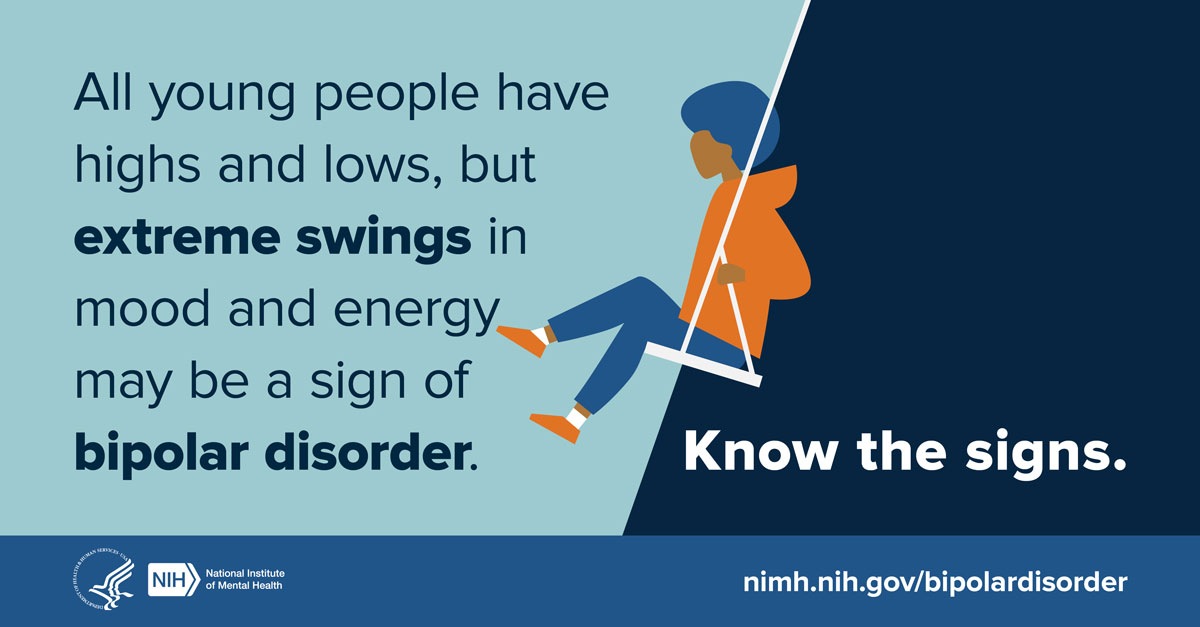
Bipolar disorder symptoms can make it hard for young people to do well in school or to get along with friends and family members. Some children and teens with bipolar disorder may try to hurt themselves or attempt suicide. Know the signs and symptoms: https://go.nih.gov/UzIGOVj #shareNIMH
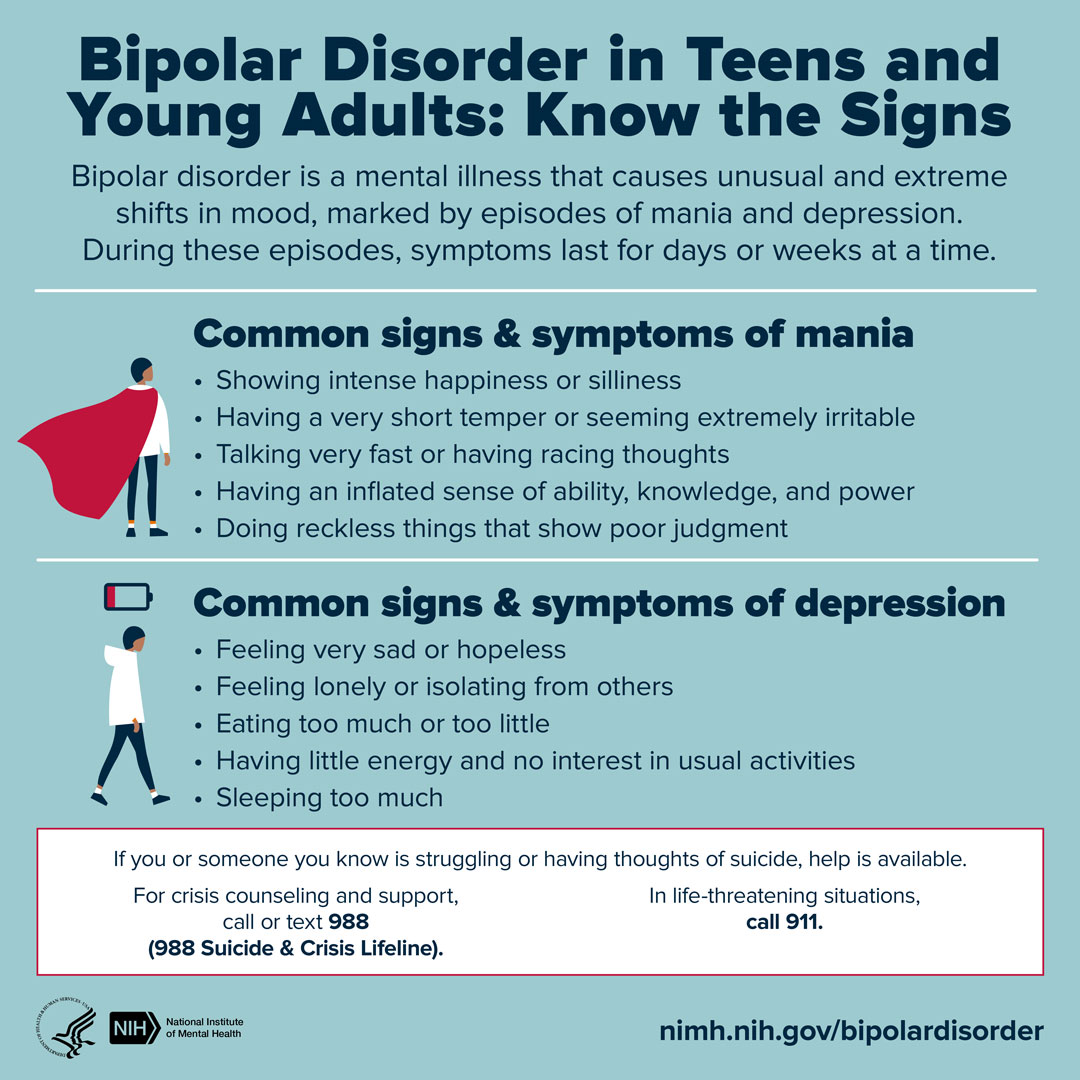
Bipolar disorder is not the same as the typical ups and downs every kid goes through. The mood swings are more extreme and accompanied by changes in sleep, energy level, and the ability to think clearly. Know the signs and symptoms: https://go.nih.gov/uU4NAlG #shareNIMH

Do you need help with your mental health? If you don't know where to start, this infographic may help guide you. https://go.nih.gov/1VtK7eA #shareNIMH
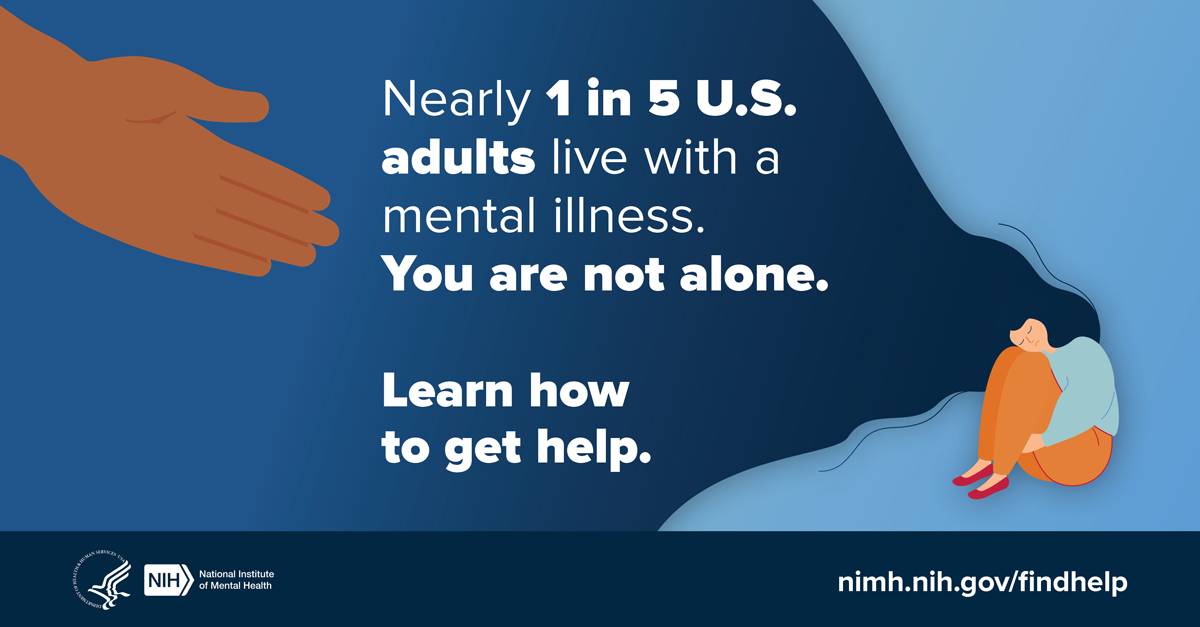
If you or someone you know has a mental illness, is struggling emotionally, or has concerns about their mental health, use these resources to find help for yourself, a friend, or a family member: https://go.nih.gov/Fx6cHCZ . #shareNIMH
Click “Copy link” to copy the video URL and post these videos on social media, or embed them on your website.
NIMH Experts Discuss Bipolar Disorder in Adults: Learn the signs and symptoms, risk factors, treatments of bipolar disorder, and the latest NIMH-supported research in this area.
Mental Health Minute: Bipolar Disorder in Adults: Take a mental health minute to learn about bipolar disorder in adults.
Last Reviewed: February 2025